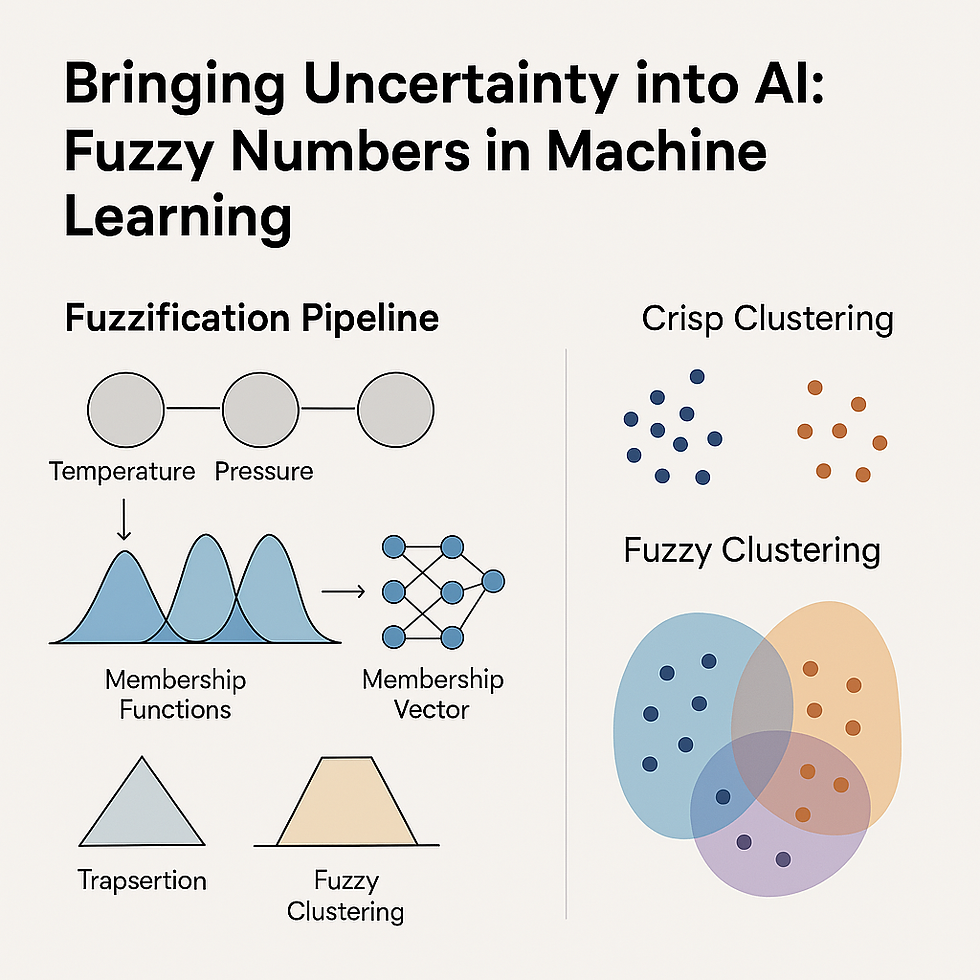🧠 Blending Logic and Belief: A Fuzzy-Bayesian Approach to Smarter Classification
- Gnosis Analytics Crew

- Jul 3, 2025
- 2 min read
When data is limited, noisy, or uncertain, traditional statistical models often struggle to make confident predictions. In this 2025 study, we introduce a Fuzzy-Bayesian Logistic Regression framework that combines the strengths of two powerful worlds: fuzzy logic (for handling vagueness) and Bayesian inference (for managing uncertainty through belief updating). The result? A novel classifier that’s both flexible and mathematically grounded.
🧩 What’s the Problem?

In many real-world classification problems—especially in fields like healthcare or finance—you’re faced with:
Imbalanced classes, where one outcome (e.g., positive diagnosis) is rare
Ambiguous or approximate predictors, like vague symptoms or approximate measurements
Low sample sizes, which can destabilize traditional models
Separation problems, which occurs when combinations of predictors perfectly separate the outcome variable and cause over-fitting.
These conditions make standard logistic regression brittle. Predictions become overconfident, or worse, the model can’t fit at all.
🔀 The Hybrid Solution: Fuzzy Meets Bayesian
This paper proposes a new modeling approach that:
Uses Gaussian fuzzy numbers to represent imprecision
Applies Bayesian updating to incorporate prior beliefs and estimate parameters under uncertainty
Produces probabilistic predictions while accounting for ambiguity in both data and structure
The fuzzy inputs allow the model to gracefully handle partial truths (e.g., “this value is somewhat high”), while the Bayesian core provides robust parameter estimates—even in sparse or noisy datasets.
📈 What It Achieved
Stable classification performance, even under class imbalance, complete separation and feature uncertainty
Improved interpretability, with posterior distributions providing transparency about uncertainty
A foundation for more human-like, flexible AI systems that don’t require perfect data
🌐 Why It Matters
This Fuzzy-Bayesian framework is well-suited for high-stakes decision environments—like clinical risk prediction, fraud detection, or environmental forecasting—where models must be cautious, interpretable, and resilient. It exemplifies the next generation of intelligent systems that can say, “I’m not totally sure, but here’s how confident I am—and why.”
📘 Published Work
This research was published in Intelligent Systems with Applications and expands the toolbox for interpretable and uncertainty-aware machine learning.
Charizanos, G., Demirhan, H., & İçen, D. (2025). Binary classification with Fuzzy-Bayesian logistic regression using Gaussian fuzzy numbers. Intelligent Systems with Applications, 26, 200494.





Comments